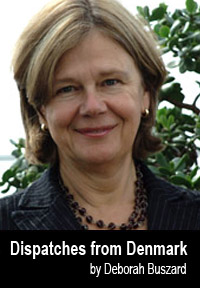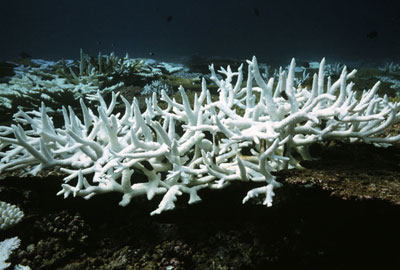 |
December 16
Copenhagen
What about the science?
At first glance, he 15th United Nations Climate Change Conference taking place in Copenhagen—COP 15 for short— appears to be much more about global politics than science, but at the heart of the matter and under all the hype and controversy it really is about science and changing our understanding of the world we live in. But it is the kind of science that makes people nervous because it challenges basic assumptions and shifts our view of our world. Hence the hype and all the loud voices we hear on both sides. If you want to know more about science issues just talk to people at Dal like Katja Fennel, Helmuth Thomas or Keith Thompson about what's happening in the oceans.
It’s not the first time science has caused social unrest: Charles Darwin’s 1859 book On the Origin of Species caused huge controversy by introducing the concept of evolution and suggesting humans were just another species. At the time this idea caused outrage in some quarters and it still causes huge disagreements in many places—just think about all the law suits around teaching evolution in U.S. schools.
 |
| Global warming is changing the ocean's chemistry. Acidification makes it harder for shell-forming organisms (such as corals) to grow their shells. |
Climate science elicits the same kind of diverse responses; asserting as it does that human activities, particularly burning fossil fuels, have already measurably impacted earth systems and that if we don’t change our behavior and stop increasing greenhouse gases in the atmosphere we may catastrophically change the ecosystem of our planet.That’s a big and scary scientific idea to some people and one that requires us to change our behavior, enough to make anyone want to question its veracity.
Many past environmental problems have been solved, once people realized they were harming human wellbeing—think of CFCs and ozone depletion, lead in gasoline, PCBs and more. Big issues in their day and we dealt with them. But climate change is different: it’s on a much grander scale, with vastly greater risks and uncertainties, and the consequences of not addressing it are much more worrying.
The recently produced synthesis of current knowledge on climate change, intended as an update to the 4th Assessment report of the IPCC (2007), outlines the scientific evidence on which the COP 15 talks are based. A discussed by Dr. Katherine Richardson this week at a COP 15 side event suggests the following:
- Greenhouse gas emissions are already at the upper end of the IPCC range of projections
- Societies and ecosystems are highly vulnerable to even modest levels of climate change. Temperature rises above 2 C will be difficult for any society to deal with
- Weak targets for greenhouse gas emissions reductions today increase the risk of serious impacts and will make it harder to reach the 2050 targets.
- A well funded adaptation strategy must be put in place for the poorest nations and those least able to adapt. This should be seen as integral to achieving equitable development goals.
- Inaction is inexcusable. There are existing technologies and regulatory mechanisms to enable societies to address the current situation. Indeed there are excellent opportunities for new “post carbon” businesses.
- Linking climate change action with broader sustainability goals provides an opportunity to move society towards truly sustainable development.
In other words: the time to act is now and we have the evidence on which to make the decisions and the tools to make the necessary changes.
Simple. Right?
Deborah Buszard is the Associate Director, Research and Outreach, with Dalhousie's College of Sustainability.
